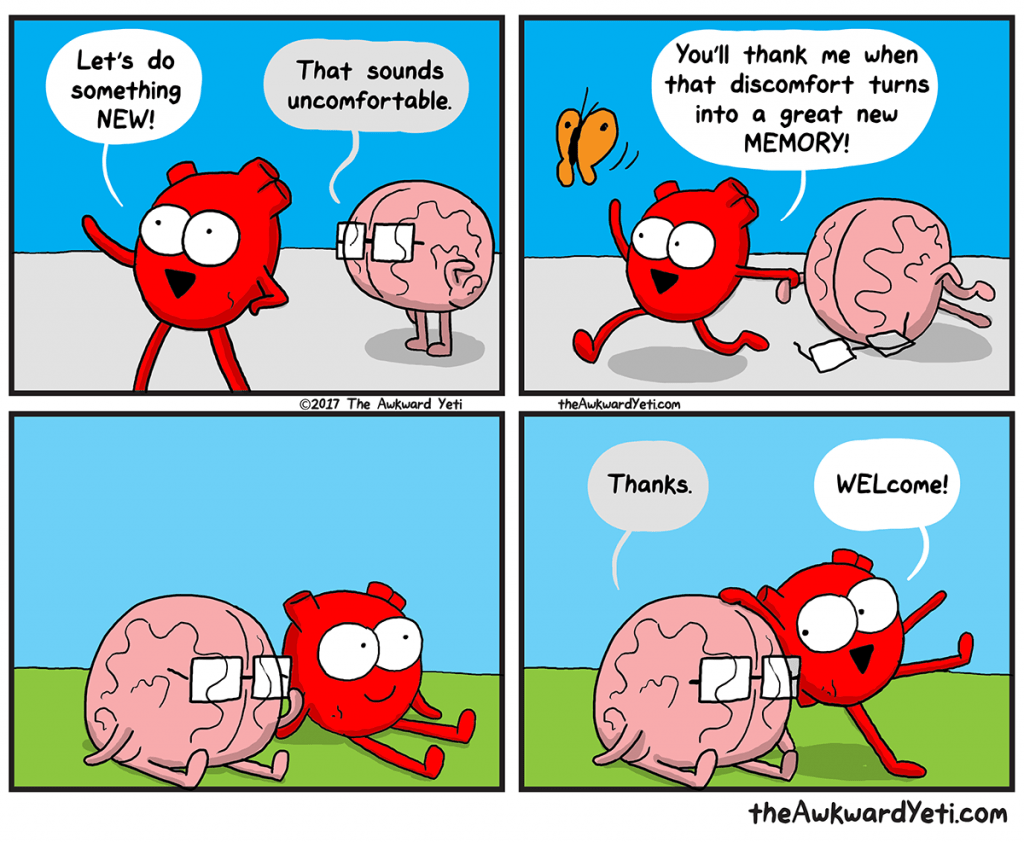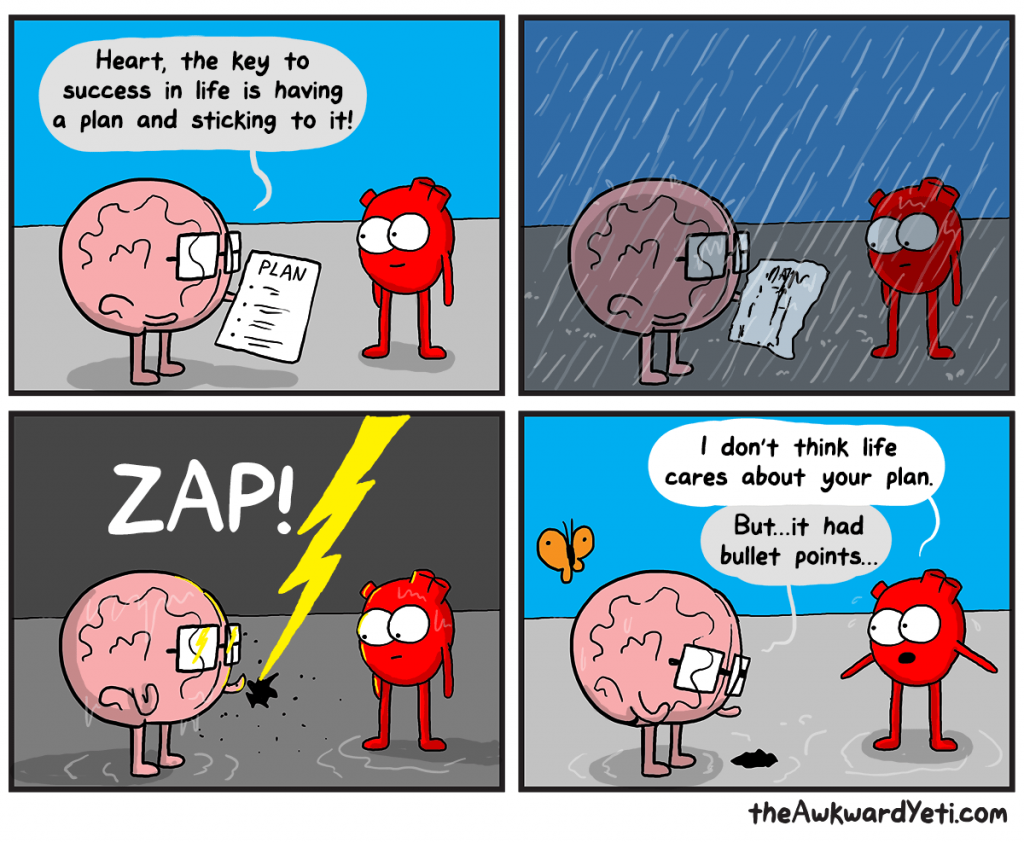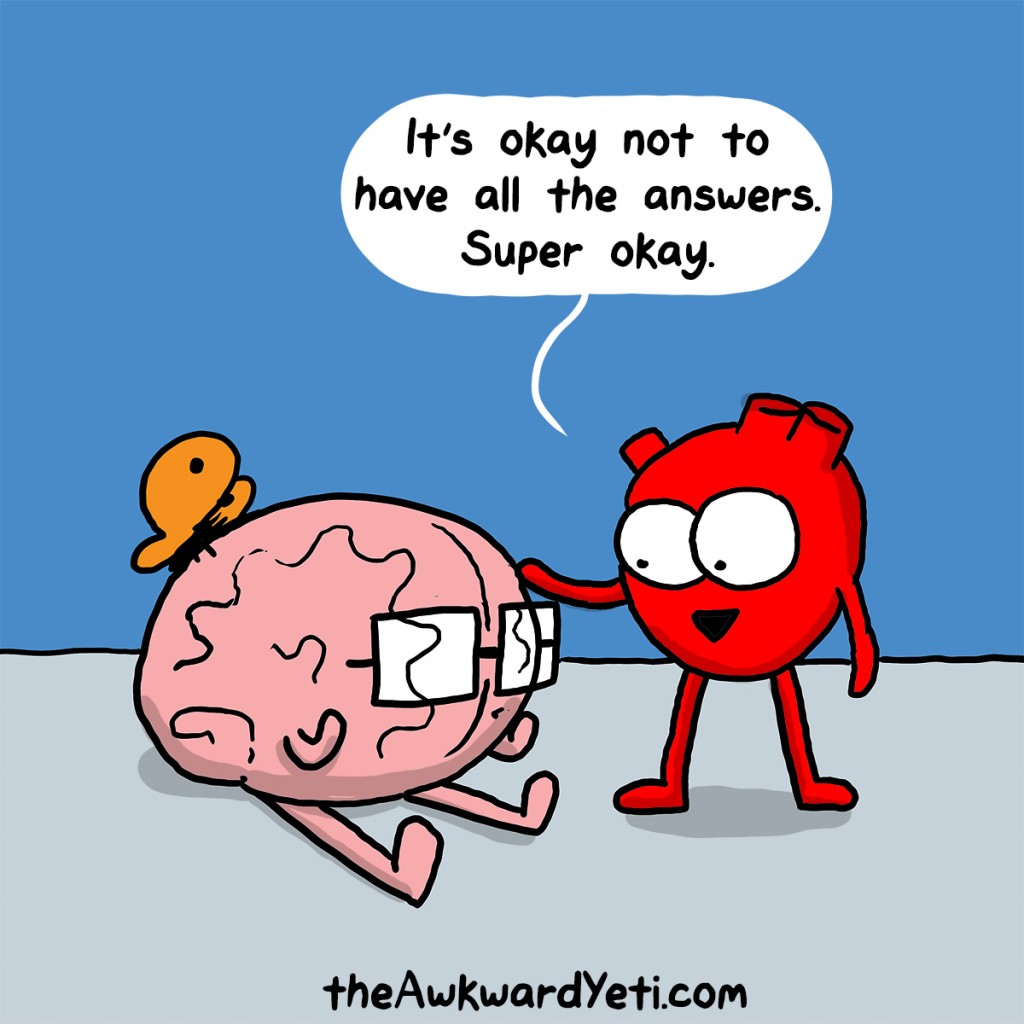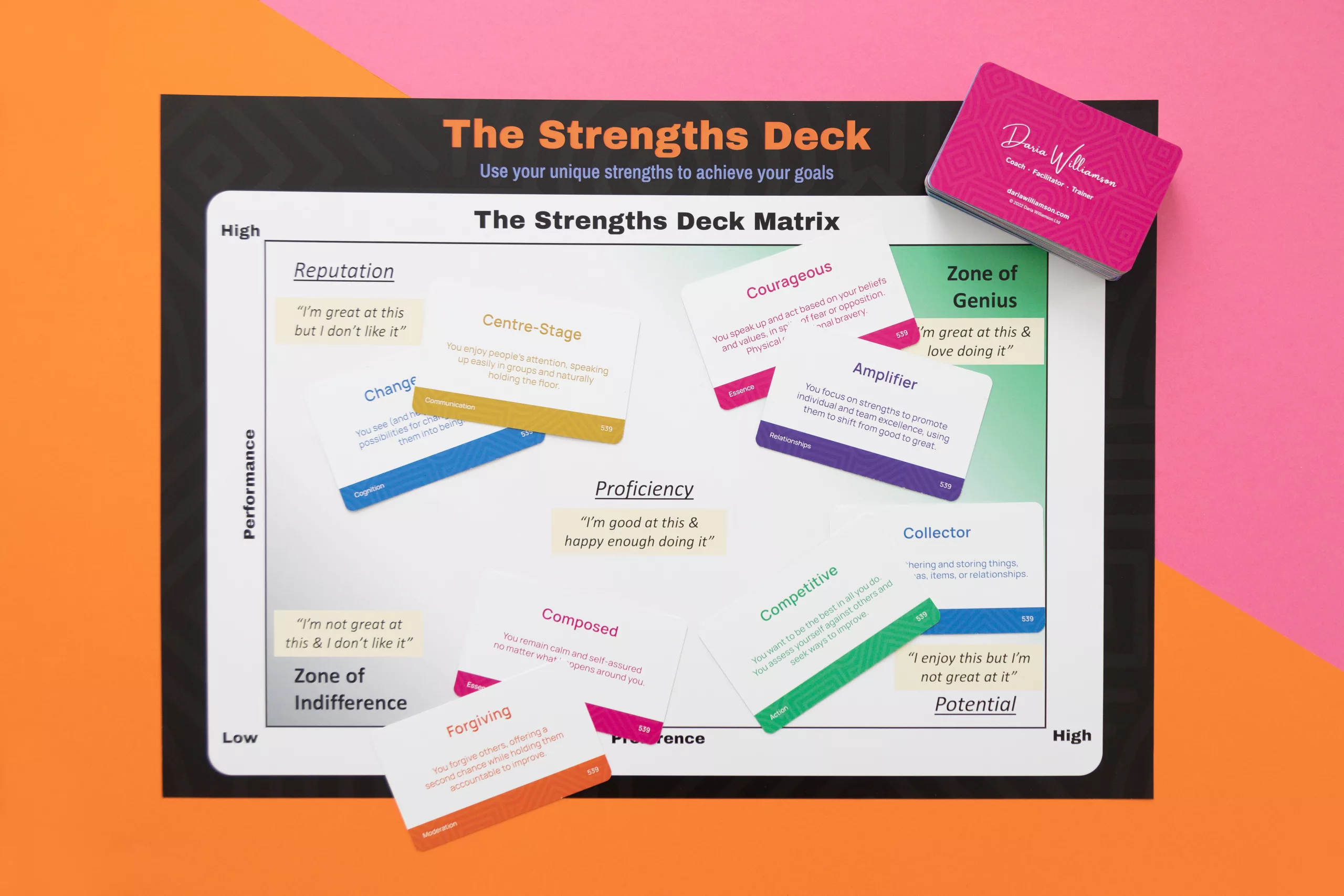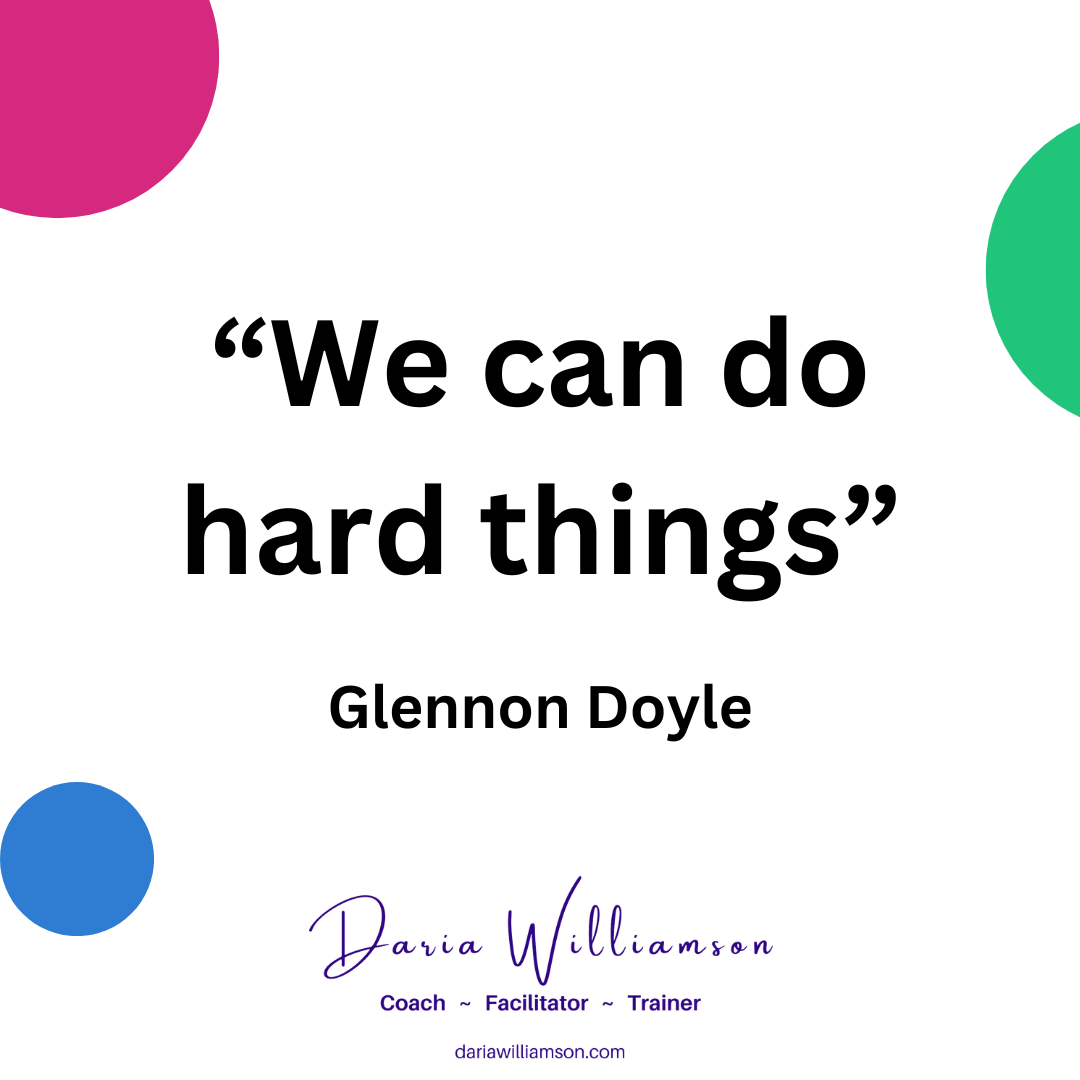Certainty is highly prized; so much of what we do and say revolves around creating certainty for ourselves, or projecting an aura of certainty for others to see. We avoid and even despise uncertainty. Part of this is because our brains are wired to prefer certainty.
The problem is not uncertainty itself, but our unfamiliarity around how to navigate uncertainty, and our lack of tools to help us do so. It’s important to understand that the only way we can change and grow as individuals, teams and societies is through embracing and working with uncertainty.
I’m convinced that we need to embrace uncertainty wholeheartedly in our lives and organisations. Once we understand why we react the way we do to uncertainty, we can learn how to use it to drive growth, improvement and development, and even have fun doing so!
My confession
I’m a recovering certainty addict. For much of my life, I prized knowing and control over uncertainty and unfolding (and I still struggle with this at times). While I thought the way I was approaching life was “good”, because I felt like I was making things happen, and doing the “right” things, I came to realise that my approach had significant drawbacks:
I was stressed
It’s not easy trying to convince yourself that you are in charge when there are so many things over which you have utterly zero control – the weather, the traffic, other people’s actions and words, the lottery numbers, world events…
I felt like a failure
With so many things going on around me that I couldn’t control, if I didn’t achieve my plans or targets, I blamed myself 100% for not getting there. The problem was, I’d made my plans and set my targets assuming that everything would go exactly the way I wanted them to.
And when they didn’t, I assumed that I had done something wrong. I guess technically I had – I could have assumed that there would be roadblocks and diversions along the way, and made more adaptable plans and targets, but for some reason, I tried to shoulder all of the responsibility, even for things that I had no chance of influencing, let alone controlling.
I didn't take risks
Desiring certainty and control above everything else led me to always “play it safe”. I followed what I assumed to be the rulebook for life. I did my best to conform to other people’s expectations. And boy, does that leave you feeling hollow!
Even when it looked outwardly like I was taking a risk (say, travelling to non-English-speaking countries alone for a couple of months) I played it safe by going to countries where I could speak the language fluently, or at least had a working knowledge of the language. I knew I couldn’t “fail” by getting myself into a situation where I didn’t understand what was going on or how to get myself out of it.
I also stayed in jobs long past the time that they were serving me because I was afraid of the uncertainty of whether I would be capable of whatever new job I took.
I was exhausted and burned out
This goes hand-in-hand with being stressed – I blew all my energy and internal resources on trying to control the uncontrollable, which left me no energy to nurture myself.
I didn't feel much joy or satisfaction in my life
I was so busy checking and assessing myself and my life that I wasn’t savouring the experience of being alive in this amazing, wonderful world. My mind was full of questions: Am I doing the right things? Does so-and-so approve of my choices? If X happens, what will I do? What if Y happens? How can I make sure that Z never happens? How can I avoid risks entirely? How can I make absolutely sure that I succeed in absolutely everything I do?
The old treadmill problem
It was like I’d jumped onto a treadmill that was always increasing in speed. It ended up going so fast that it didn’t matter whether I chose to stay on, or get off – either way, I was going to end up hurting myself. Trying to be certain wasn’t working out very well for me. I had to take a leap off the treadmill.
Thankfully, I started to learn about how my brain’s wiring had backed me into a corner, and how I could re-frame my beliefs and experiences in a way that would help me move into a different, more positive, relationship with uncertainty.

What's with the wiring?
The human brain is a wonderful thing. It starts working the moment you are born and never stops until you stand up to speak in public.
George Jessel Tweet
Our brains really are marvellous – just think of all the incredible discoveries and creativity and achievements of the human race. The brain is the catalyst for them all.
But behind all these marvellous accomplishments lies a rather odd design “feature” – the part of our body that allows us to achieve inspired results is wired to keep us out of the zone where we can get those results.
I’m talking about our brain’s desire for certainty. For most of us, our brains are wired so that we prefer things that are safe and familiar, tried and true, over anything that has even a hint of unusual or new, unfamiliar or uncertain. Certainty gives us a hit of dopamine (reward) as our expectations are met; uncertainty triggers the amygdala (part of the limbic system in the brain responsible for survival instincts, among other things).
Uncertainty and our nervous system
When we have a sense of certainty, our sympathetic nervous system (SNS – the flight or flight system) relaxes, and the parasympathetic nervous system (PNS – the rest and digest system) does its thing. Which is a good thing if all you want to do is lie around enjoying your food. But living with the PNS permanently engaged is fatal to anyone who desires to grow, learn, and make a difference in this world. You can read more about this in my article about the autonomic nervous system.
I'm convinced that we need more uncertainty
Ah yes, the paradox of writing a post in which I share my certainty about the vital importance of uncertainty! But hear me out – embracing uncertainty has so many benefits:
- It creates space for learning – if you are 100% certain about something, you’re not open to new information about it
- We can let go of the idea that there is only one way of “knowing”, which helps us embrace diverse thoughts, designs and ways to do things
- Creativity bubbles up when we break free of the rules
- We can create a culture that values experimentation and learning, instead of the usual success/failure paradigm, where if you try something and it doesn’t work, you are a failure, rather than Edison’s supposed “I haven’t failed. I’ve just found 10,000 ways that don’t work”.
- We can adapt and respond when things don’t go the way we planned
Allow me to clarify...
I’m not advocating for embracing uncertainty merely for the purpose of transforming it into certainty. In fact, that’s the opposite of my philosophy!
I believe we need to learn how to tolerate enough uncertainty that we can work in the realm of possibility and create the kind of future we desire. And when we aren’t spending every minute trying to control everything, we have time to pause, reflect, savour and enjoy this amazing opportunity of being alive.
What uncertainty isn't
- a lack of self-confidence. You need a heck of a lot of self-belief to embrace living with uncertainty!
- being unclear about your purpose, mission, and goals. If you don’t know where you’re heading, and why, you’ll never get there.
- a lack of leadership capacity or ability. In fact, it takes a deeply confident leader to deliberately lead people into and through uncertainty to go to new levels of insight, action and performance.
- an excuse to leap into action without doing your research and thinking first. The more aware you are of your context, whether business or personal, the more prepared you will be to navigate uncertainty and achieve success.
Uncertainty is the foundation for growth
Only in giving up the security of the known can we create new opportunities, grow capability, build confidence and expand our influence.
Margie Warrell in Forbes Tweet
Life moves at the speed of light these days – we can’t guarantee that what was true yesterday is true today. It’s no wonder our brains crave certainty.
However, if we don’t embrace uncertainty, we can’t learn, grow, explore, create and discover new things. So, what do we need to do to embrace uncertainty?

We can embrace uncertainty
Such an easy phrase to write, and so challenging to practise! While we can embrace uncertainty in many ways, it’s vital that we are kind to ourselves on the journey. Some days we feel like we can handle anything, other days not so much. So be prepared to surf the waves of what you can handle – this is a marathon, not a sprint!
How to embrace uncertainty
Remind yourself that change is part of being human
Look at how much you’ve changed since childhood!
Write about when you’ve faced uncertainty before
Think about a time of uncertainty you faced (e.g. changing schools/jobs, relationships, travelling). Describe it in vivid detail and then write out what you learned from the experience. This helps build emotional resilience because you are calling to mind your ability to cope with uncertainty.
Be prepared for emotions to surface
Especially frustration, fear, anger, anxiety, doubt. Try naming the emotion and thinking about what your subconscious might be trying to communicate. What can you do to dial up your self-confidence?
Develop and use mantras
Mantras are a great way of reminding ourselves of what’s important or helpful. Repeating them to ourselves helps build the neural pathways in our brains, strengthening our belief in the message of the mantra.
Some examples:
- “This too shall pass”,
- “Something good will come out of this”,
- “I’ve survived 100% of my tough days so far”.
Build a support crew
This might be friends, family, or an online community – anyone who gives you a positive boost when you need it.
Find one or two people who will support you when you’re feeling vulnerable, and be open about what’s going on.
Feeling seen and heard by someone who accepts you is immensely soothing to your sympathetic nervous system – it dials down the feeling of threat because you’re surrounded by your tribe.
Remind yourself that control is an illusion
I don’t want to trigger or escalate any anxiety you might be feeling, but the reality is that we control only a tiny part of what happens to us, and only have partial control over our responses (check out my post on the autonomic nervous system for more information).
Embracing the knowledge that we aren’t 100% responsible for everything can be quite freeing. It doesn’t mean we stop trying, it simply means that we don’t beat ourselves up if we don’t handle everything perfectly.
Work with what you truly can control
There are small and large things that you have control over – what you eat for breakfast, how and when you exercise, who you spend time with etc. These all contribute to your level of wellbeing.
If something isn’t serving you, you can change it. If something is working well for you, you can maintain it, or tweak it to make it even better for you.
How do we embrace uncertainty in organisations?
This is the million-dollar question (literally, for larger organisations!) I won’t be able to do this question justice in one single article, so I’ll summarise a few thoughts here. Much of my writing touches on this very issue, so I’ll link to other articles where I set out information in more detail.
Firstly – we need to develop a culture that embraces learning, risk-taking (appropriately, of course), and experimentation. Psychological safety is a huge component of this sort of culture.
Then, we need to create systems, processes and tools that support learning, risk-taking and experimentation. This approach is the essence of continuous improvement.
And, we need to accept that when we try something new, it’s very unlikely that we’ll execute brilliantly the first time we give it a go. So we need to embrace the idea that before we get good at something, we’ll start off being bad at it.
References
My thanks to the following writers for helping shape my thoughts about uncertainty:


